Aunque las clasificaciones le dirán qué tan bueno es un libro según nuestros dos criterios principales, no le dirán nada acerca de sus características particulares. Así, utilizamos 20 cualidades para clasificar cada libro según sus fortalezas:
Aplicable – Obtendrá consejos que puede aplicar directamente en su trabajo o en situaciones cotidianas.
Analítico – Comprenderá el funcionamiento interno del tema a tratar.
Audaz – Encontrará argumentaciones que podrían romper con posturas predominantes.
Bien estructurado – Lo encontrará particularmente bien organizado para apoyar su recepción o aplicación.
Científico – Se enterará de hechos y cifras con bases científicas.
Conocimiento experto – Tendrá el privilegio de aprender de alguien que conoce del tema al derecho y al revés.
Contextual – Conocerá información de contexto como marco para acciones o análisis informados.
Controversial – Se enfrentará a opiniones fuertemente debatidas.
Ejemplos concretos – Recibirá consejos prácticos ilustrados a través de su implementación en ejemplos o anécdotas reales.
Elocuente – Disfrutará de un texto escrito o presentado de manera extraordinaria.
Exhaustivo – Encontrará todos los aspectos sobre un tema.
Revelador – Le ofrecerá información altamente sorpresiva.
Innovador – Puede esperar encontrar algunas ideas y perspectivas verdaderamente nuevas sobre productos o tendencias nuevas.
Inspirador – Querrá poner en práctica inmediatamente lo leído.
Interesante – Leerá o verá algo de principio a fin.
Para expertos – Usted obtendrá el conocimiento del más alto nivel que necesita como experto.
Para principiantes – Lo encontrará ser un buen inicio si recién empieza a conocer el tema o no tiene experiencia ni conocimientos previos.
Tema en boga – Se encontrará en medio de un tema de gran debate.
Revelador – Obtendrá conocimientos que lo sorprenderán.
Visión general – Recibirá un tratamiento general del tema en el que se mencionen sus principales aspectos.
Visionario – Podrá echar un vistazo al futuro y lo que podría significar para usted.
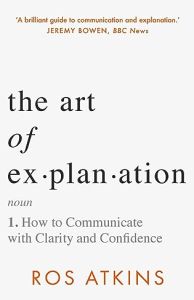








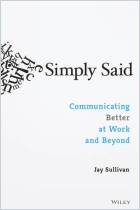
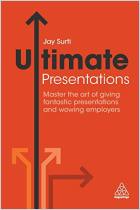
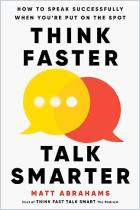
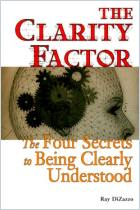
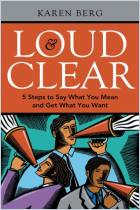
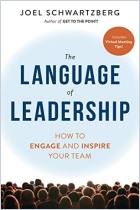







Comment on this summary or Comenzar discusión
If you've ever struggled to make complicated thoughts, products, or offerings smooth for others to understand, "The Art of Explanation" through Lee LeFever is a need to-read. This book is an vital guide for each person looking to improve their conversation abilities, specially in making complicated subjects handy and tasty.
LeFever, the founder of Common Craft, stocks his know-how in developing clear and compelling causes. This e-book is in particular treasured for experts in education, advertising, enterprise, and generation who frequently want to deliver complex information to numerous audiences.
**Key motives to advocate this e book consist of:**
1. **Clear Framework**: LeFever introduces the "Explanation Scale" and the "Explanation Lifecycle," presenting a structured approach to crafting effective motives.
2. **Engaging Examples**: The ebook is full of actual-global examples and case studies that illustrate how powerful causes can rework information and engagement.
Three. **Practical Techniques**: LeFever gives actionable strategies for breaking down complicated thoughts, the use of analogies, storytelling, and visual aids to make records greater digestible.
4. **Focus on Audience**: The ebook emphasizes the significance of know-how your target audience's wishes, information stage, and attitude, ensuring your factors are tailored and applicable.
5. **Visual Communication**: As a pioneer in the use of explainer films, LeFever stocks insights on leveraging visuals to enhance information and retention.
6. **Improving Clarity**: The e-book gives strategies to simplify language, take away jargon, and make clear key messages, making your conversation extra powerful.
**Who Should Read This Book:**
- **Educators**: Teachers, trainers, and instructional designers trying to decorate their coaching methods and materials.
- **Marketers**: Professionals who want to communicate the value of services and products to ability clients.
- **Business Leaders**: Executives and bosses who should provide an explanation for strategies, methods, and modifications inside their businesses.
- **Tech Professionals**: Developers, engineers, and product managers who want to make technical records available to non-technical audiences.
- **Content Creators**: Writers, video producers, and designers who create instructional or informational content material.
**Key Takeaways:**
- **Understand Your Audience**: Tailor your motives to the expertise level and pastimes of your audience.
- **Simplify and Clarify**: Use easy language, analogies, and visuals to make complex ideas more accessible.
- **Engage Through Storytelling**: Incorporate tales and relatable examples to make your motives extra engaging and memorable.
**Conclusion:**
Lee LeFever's "The Art of Explanation" is a incredibly endorsed useful resource for all and sundry seeking to enhance their capacity to explain complex ideas correctly. By following LeFever's ideas and techniques, you may enhance your conversation skills, making your thoughts, merchandise, and services less complicated to understand and more compelling in your target audience.